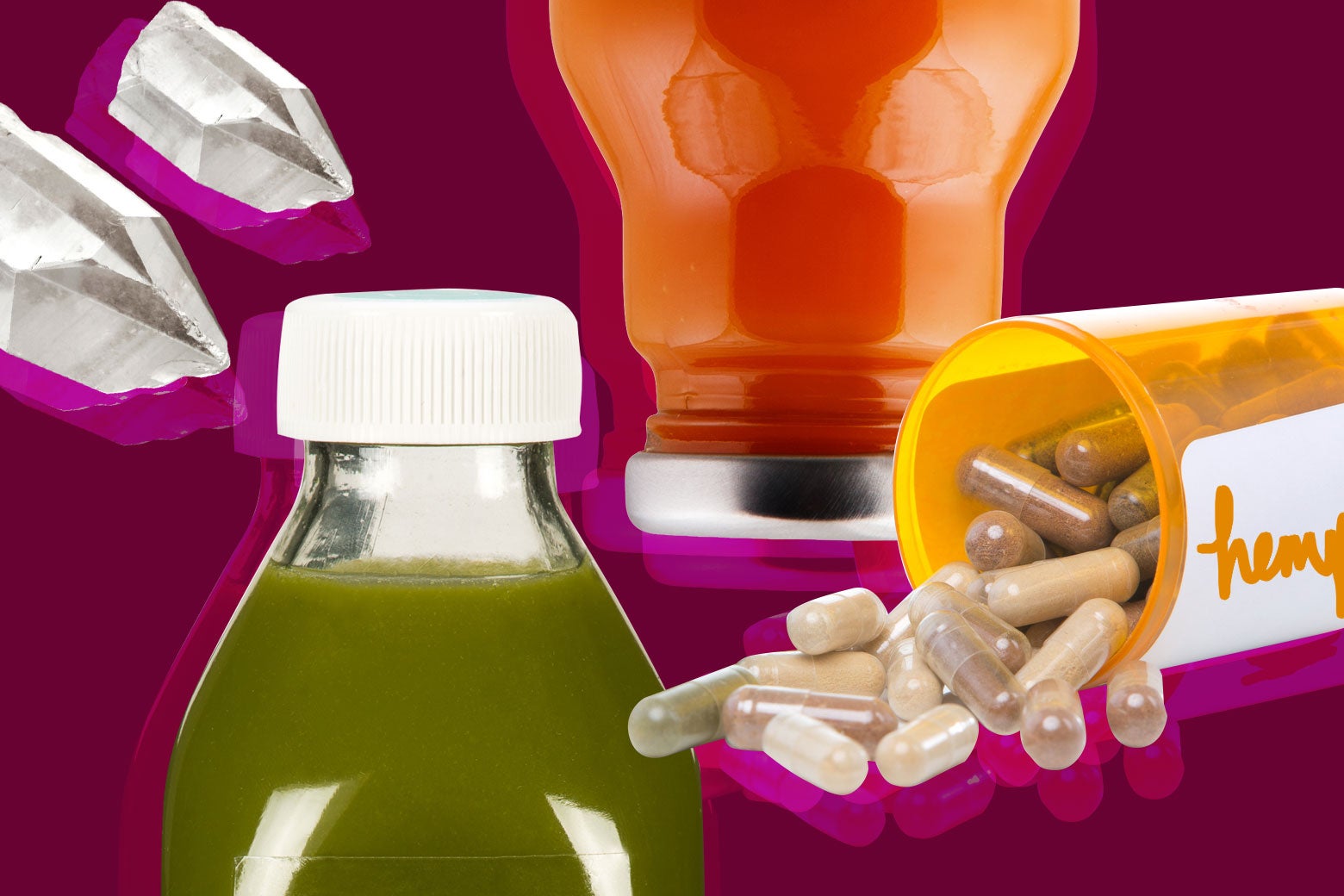Scientifically speaking, “detoxing” isn’t a thing. Your body doesn’t retain so-called toxins ingested via food or drugs or plastic dishes, or breathed in through air. You don’t sweat them out at yoga, get rid of them via special massage, or purge them through colonics. As writer Dara Mohammadi put it in a scorching takedown of the dominant wellness watchword of the past decade: “If toxins did build up in a way that your body couldn’t excrete, you’d likely be dead or in need of serious medical intervention.”
Given that scientists, doctors, and nutritionists have united in rejecting the very idea of a “detox,” it’s a bit head-scratching to read the New York Times’ T Magazine’s My Detox column, featuring attractive “creative people” sharing “the homemade recipes they count on to detox, cleanse—and refresh.” In a recent installment, the model Alek Wek recommends a Sudanese okra stew; she “adds a glass of detoxifying lemon juice” to her recipe when her life is about to get especially busy. In the column before that one, the rapper Junglepussy (Shayna McHayle) describes how she makes a lemon-scented body oil at home. “McHayle is choosy,” the writer Coco Romack notes, “about where she sources her beauty products, which she prefers chemical free.” (“Chemical-free,” like “detoxing,” is not really a thing.)
My Detox isn’t the only place in the Times where you can find casual, credulous treatments of pseudoscientific “wellness” concepts. The Styles section has run its share of coverage that might trigger a skeptical reader’s bullshit alarm. For a recent installment of her Styles column
“Me Time,” Marisa Meltzer went to a spa, where she got one treatment combining clairvoyance (!) and acupuncture, and another with a crystal healer. Meltzer’s tone projects gameness—“Let’s try this out!”—rather than whole-hearted endorsement, but the writer does report some actual results. “The [crystals] session felt cathartic and left me emotionally vulnerable in a way that a massage never has,” Meltzer wrote. Available research suggests that if crystals work for you, it’s probably through the placebo effect. (And for what it’s worth, Emily Atkin wrote in the New Republic recently that the crystals you buy may have been mined under adverse conditions, for workers and the environment; it’ll be very hard for the average consumer to tell.)
The typical Times lifestyle treatment of these wellness fads holds the question of science at arms’ length. Take a different Styles piece on “adaptogens”—supplements from herbal medicine that are supposed to help calibrate your body’s stress response but which have not been studied by researchers. “Although the science is as murky as a mushroom drink looks and these supplements are unregulated by the Food and Drug Administration, this hasn’t stopped trendsetters from sharing their purposed benefits,” Rachel Jacoby Zoldan writes—one strategically skeptical clause, in a piece that’s otherwise packed with positive quotes from people who sell and blog about adaptogenic products and beautiful photos of freshly blended bright-blue smoothies.
According to the Times, My Detox should be exempt from evaluation on the basis of scientific validity. “ ‘My Detox’ is a column that is not essentially about science,” Jordan Cohen, a Times spokesman, wrote in an email. “It’s a subjective column meant to introduce T readers to interesting people and the personal stories of their own routines. As the tagline reads, T is simply putting a spotlight on the homemade recipes they count on. ‘My Detox’ pieces are not meant to serve as instructional stories.” (Though, if these “personal stories” are “not intended as instructional stories,” why include recipes?) Cohen added: “The Times’ science and health editors regularly offer guidance on relevant subject matter for sections when necessary.”
To be fair, the intrusion of pseudoscientific wellness language into editorial coverage is not a problem exclusive to the Times. Pseudoscience creep is how Bon Appétit can run an essay in which the author begs the reader not to talk about “toxins”—“If you’re not on dialysis, your toxin level is probably okay”—while also publishing stories like “Post-Thanksgiving Weight-Loss and Detox Recipes,” a “Tax Day Detox,” and “Rich, Heavy Recipes to Ruin Your New Year’s Resolution Detox Diet.” (Slate has run a few stories that edge into “detox is real” territory, too.)
Some might argue that detox clearly just means “healthy” now, so why be pedantic about its origins? Many people surely just like the way rose quartz looks on their windowsill, or the way they feel after drinking hot water and lemon in the morning, and don’t put too much stock in the science. But I still can’t shake the feeling that normalizing detox isn’t as benign as it might seem. It’s not just that the word is unscientific. As the Times’ Taffy Brodesser-Akner wrote in her great 2017 piece on the shift between an old “diet” paradigm and our “clean eating” world, talk of “cleansing” hides old compulsions in new clothing. In other words, the “detoxing” concept implies that it’s normal to lead a life where your body is “dirty,” then clean; dirty, then clean; over and over again. Boringly, the actual best way to stay healthy is to maintain a Pollan-esque diet, drink enough water, exercise regularly, and get enough sleep—over and over again, forever and ever. “Detoxing” is much more narratively exciting, but it also smacks of bingeing and purging, which isn’t sustainable or healthy.
The idea of the “detox” is also politically fraught. It implies that our everyday lives are full of encounters with dangerous chemicals and that this problem can be solved on a person-by-person basis, by taking expensive and strenuous action to “purge” our bodies of the bad old world. There are real problems with “toxins” in the world, but their solutions aren’t individual; they’re collective. Meanwhile, “detox” culture looks inside, even when nothing’s there.
